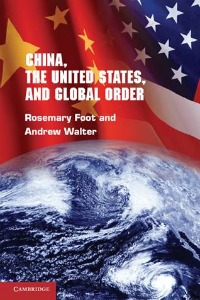A Return to the Right for Mexico? Foucault’s Pendulum and Missed Political Opportunities
In June 2021, amidst the COVID-19 pandemic, Mexico will face what is bound to be one of the most complex mid-term elections the country has seen in the last two decades. At stake is control of 15 (out of 32) governorships, 30 state legislatures, 1,900 municipalities and a complete renewal of the Lower Chamber of Congress. The outcome will clearly be either a punishment or a reward for the leftist administration of Andrés Manuel López Obrador (AMLO) and the ballots cast this summer will undoubtedly make or break the second half of his presidency. The extent to which the COVID-shock has impacted individual political preferences in Mexico remains unclear. Looking at the most recent available data to conduct an exploratory …
Mongolia’s Debt Overhang Amidst a Pandemic
As the economic effects of the COVID-19 pandemic unfold, the most severe casualties of “The Great Lockdown” are resource-dependent economies with limited institutional capacity to respond to the crisis. Their supply chains have been cut off, their markets are disrupted, and their investors are crowding out. Many of these countries have high external debt and an obligation to repay it in the medium term or they will face the trilemma of registering a double-digit growth, accruing further debt, or defaulting. Come 2021, Mongolia, a superlatively resource-dependent economy, will be at the center of this trilemma. The immediate cause of Mongolia’s current state is its inconsistent fiscal expenditure and its undiversified mining economy. Over the years, fiscal mismanagement of the previous …
Cutting the Costs of Bureaucracy: Are We Nearly There Yet and How Would We Know?
In 1955 G.A. Campbell wrote ‘[s]o long as officials obtained the whole or part of their income from fees, the total cost of the Service remained hidden. Parliament needed to provide no money at all for salaries in some departments, and where revenue did not balance expenditure it voted only for the difference. Under the new arrangements [after 1837] Parliament saw for the first time the wages bill of the public administration. The cost seemed to members of both Houses to be enormous. […] There has never since been a time when Parliament has not thought the Civil Service to be too costly and sought, more or less urgently, for economies in administration.’ (The Civil Service in Britain, Penguin, p. …
From Austerity to Growth – The politics of painfully slow economic recoveries
Much to Angela Merkel’s chagrin, international political momentum seems to have swung rather decidedly from ‘austerity’ to ‘growth’. The transformation had been underway for some time – playing out in debates across the economics blogosphere – but the elections in France and Greece clearly accelerated this evolution. The recent G8 summit communiqué – which leads with the phrase “Our imperative is to promote growth and jobs” – epitomizes the shift. In terms of our collective understanding of economics and how to fight recessions, I think there’s actually a lot less here than meets the eye, and indeed a lot of rather meaningless talk. To begin with, as Tyler Cowen has pointed out, ‘austerity’ means many different things to different people, and …

Paralysis or Metamorphosis? A debate on the Eurozone Crisis and its implications for the EU
On Wednesday, 29 February, 2012, the Oxford European Studies Centre hosted two esteemed guests: Daniel Cohn-Bendit, co-president of the European Greens in the European Parliament and renowned activist of the French left; and Edouard Gaudot, researcher for the European Greens and member of the Spinelli Group. The event offered a lively discussion regarding the ramifications of the European crisis, particularly in light of recent events regarding the Greek debt. Mr. Cohn-Bendit began the debate by characterizing the current climate as “a turning point in European history, because the European Union is confronted with one of its most serious crises, caused by the financial crisis”. In reference to its efforts to grapple with economic catastrophe, he contended that the EU is …

China, the United States, and Global Order: An Interview with Professor Rosemary Foot
Rosemary Foot is a Professor of International Relations and John Swire Senior Research Fellow at St Antony’s College, Oxford. She has been a celebrated China scholar since completing her doctorate at the London School of Economics on Sino-Soviet relations and West Asia. Here, Professor Foot takes a moment to speak with Politics in Spires regarding her most recent book. Congratulations, your latest book, China, the United States, and Global Order has been praised by Foreign Policy Magazine as one of the 23 Essential Readings of 2011. Could we begin with you telling us a bit about the efforts behind this work? The book was a collaborative effort.* My co-author [Andrew Walter] is a specialist in international political economy, and I …

Towards a Realizable Progressive Politics: A Q&A with Dr. Sophie Heine
Dr. Sophie Heine is a visiting scholar at the University of Oxford Department of Politics and International Relations, a Research Fellow at the Universtité Libre de Bruxelles and FNRS and a Wiener-Anspach Foundation Scholar; her research engages with identity politics and ideology in contemporary Europe. Here, she takes a moment to speak with Politics in Spires regarding the Occupy protests of 2011, and offers a preview of her forthcoming book. I. Your recent work, Oser penser à gauche (“Dare to think to the left”), argues that contemporary progressive politics must redefine its underpinning ideology and articulate a coherent, emancipatory platform for change. This analysis proves particularly relevant to the waves of “Occupy” protests that began in New York in October …
One small step for a Chinese, one big step for China. Is the space race really a sign of China’s new confidence?
When westerners think about China, the concept that springs more and more to mind is modernity. This seems surprising when one looks at the statistics – after all, the developing middle class, an indicator of a more urban and modernizing society, is still a minority (perhaps 300 million of China’s 1.3 billion population), albeit a fast-growing one, and China remains a very poor country in terms of per capita GDP, as well as substantially rural. Yet in other areas, it’s clear that China is placing itself at the forefront of our understanding of what it means to be a modern state. One iconic area in this regard is space technology: the Chinese Shenzhou programme of space exploration seems particularly daring …









